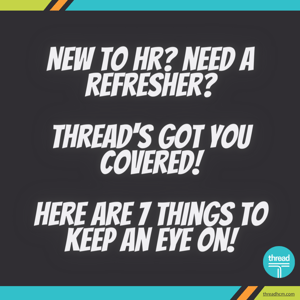Temporary workers play a significant role in certain businesses. Especially with employers in industries that heavily rely on strong holiday season sales, temporary workers' performance is also critical to customer service satisfaction. However, how do you know whether or not hiring temporary workers is truly advantageous to your business?
Consider the following six advantages and disadvantages:
Advantages
- They enable businesses to adjust more easily and quickly to workload fluctuations (e.g., employee absences, unexpected customer demands, etc.).
- The employer may choose to evaluate and promote a temporary worker into a regular job position with less hesitation (since you have already observed work performance).
- They can provide specialized skills and offer employers new ideas or techniques that can become a competitive advantage for the business.
- They customarily do not receive employee benefits which is a major cost-benefit.
- In terms of the hiring process, employers may consider contracting with a placement agency to recruit, select and hire temporary workers for them. This results in time savings of not interviewing job candidates or setting aside time to go over paperwork.
- They would only need to receive training (if applicable) for specialized projects and not be held responsible for other departments.
Disadvantages
- If the employer chooses to have a temporary agency bring in a person, the employer may miss out on screening the worker’s “personality” and form important first impressions.
- Their motivation may decrease over time.
- They may superficially show interest in the company's success but may not be too invested since no direct employee benefits (e.g., health insurance, stock options, or job advancement) are offered.
- They are less able to form successful, long-lasting relationships with other workforce members due to being focused within a single department or assigned to a special project.
- Safety risks are higher because the individual is less likely to be familiar with safety procedures set out by the company.
- A supervisor often needs to micromanage until they feel a temporary employee can safely perform the work tasks alone.
In all, when deciding whether to keep a temporary worker, employers need to critically analyze how much of an impact their businesses would have if work remains unassigned or a position remains vacant. Cost-benefits should be explored as well. If you as an employer decide to hire a new temporary worker, ensure early success with clear expectations and direction as you would with any newly-hired regular employee.












